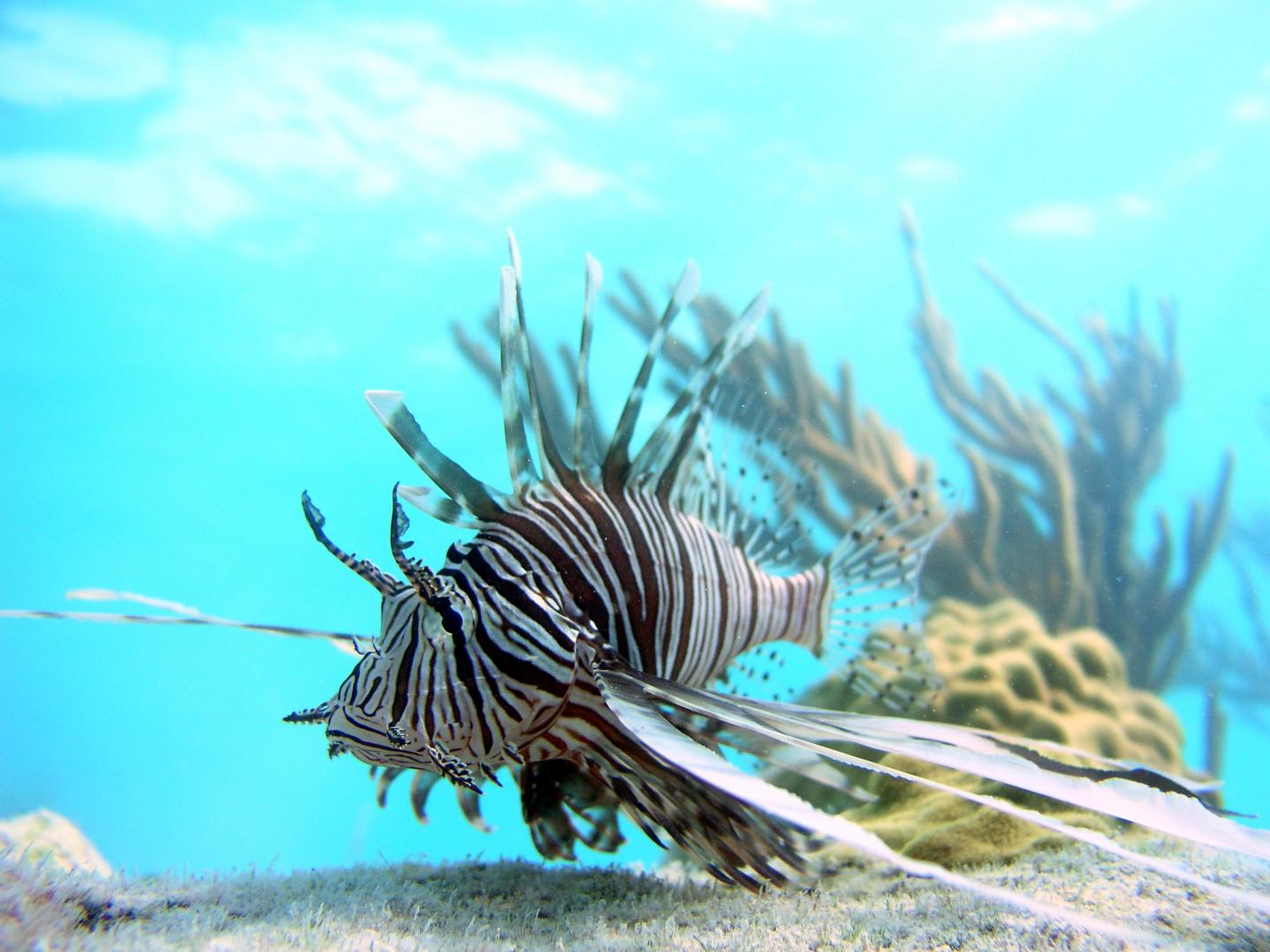Marine biologists uncover clues about what makes invasive lionfish such effective predators on reefs in the Atlantic and Caribbean

Credit: Mark Albins, Ohio State University
A new model is providing insight into the impact of invasive lionfish on coral reefs in the Atlantic Ocean and Caribbean Sea. The venomous predatory fish has invaded more than 7.3 million square kilometres in the Atlantic and Caribbean, wreaking havoc among native fish populations.
The method, developed and tested with coral reef fish in the Bahamas through an international collaboration of scientists in Canada, the United States, and United Kingdom, is based on the behaviours used by prey to avoid being eaten by predators that use different hunting tactics.
“Many scientists have speculated that invasive lionfish are so successful in the Atlantic because prey don’t recognize them as a predator,” explained Stephanie Green, assistant professor in the University of Alberta’s Department of Biological Sciences and lead author.
Stephanie Green, assistant professor in the Department of Biological Sciences, swims alongside a lionfish.
“However, we found that reef fish enter the ‘danger zone’–close enough to be eaten–around invasive lionfish at similar rates to native predators. But for those prey that stray too close to lionfish, they are up to twice as likely to be captured than by predators that are naturally found on Caribbean reefs.”
The ranges of many predators are expected to grow, due to climate change and future invasions. The new method is designed to help both scientists and conservationists better understand how predators select their prey. In the case of lionfish, the scientists’ hope the model can help them identify areas where native species are most vulnerable to the novel stalking hunting strategy of lionfish as the invasion spreads.
“As invasions take hold, scientists have few tools to help them predict what the effects will be,and as a result, we often don’t understand how invasive predators have changed environments until it is too late,” added Mark Hixon, professor at the University of Hawai’i and co-author of the study.
The authors hope their approach can be used by researchers in the Mediterranean who are keen to understand which kinds of fishes and fisheries there will be most affected by the recent invasion of lionfish in this region. Green is also adapting the model to examine predator-prey interactions for albacore tuna with respect to climate change. “We hope that using knowledge of species behaviours can help scientists and managers predict who will eat whom when predators and prey encounter one another in new settings,” added Green, who is also a Sloan Research Fellow.
###
The paper, “Trait-mediated foraging drives patterns of selective predation by native and invasive coral-reef fishes,” is published in Ecosphere (doi: 10.1002/ecs2.27520).
Media Contact
Katie Willis
[email protected]
Original Source
https:/
Related Journal Article
http://dx.




